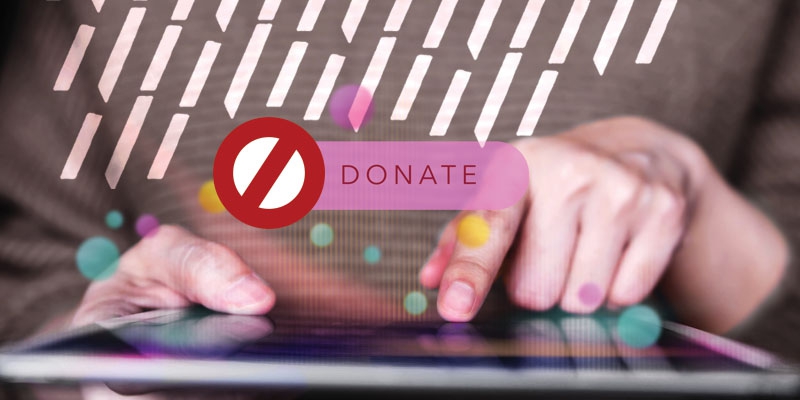Posted On: April 29, 2025 by Prevail Bank in: Fraud

The FBI recently issued a warning to the public that scammers are taking advantage of the mass casualty events and disasters of the world by establishing fake charities. They are also posing as disaster relief agencies so they can collect your personal information and/or are pretending to be high-profile victims to tug at your heartstrings and acquire your donations. You’ll find these schemes online as well as in-person during collection drives.
In 2024, the FBI Internet Crime Complaint Center (IC3) received more than 4,500 complaints reporting approximately $96 million in losses to fraudulent charities, crowdfunding accounts, and disaster relief campaigns.
Tips to Protect Yourself
Do your own research before you donate to anything. Confirm the validity of any charitable opportunity. Best practices include, but are not limited to:
Verifying charities by researching the charity online to see if there are news articles, reviews, or posts linking the charity to fraud.
Checking to see if the charity is registered with Internal Revenue Service (https://www.irs.gov).
Validating that crowdfunding efforts are supporting the beneficiaries advertised; researching who is behind the crowdfunding request; researching who the request is intended to benefit and if the need is legitimate; and reverse searching images and stories associated with the request, as scammers will often copy and paste material stolen from others.
Be suspicious of online communications claiming to be from individuals affected by the events and seeking immediate financial assistance. Remember AI (artificial intelligence) can replicate any image or voice desired. It’s extremely difficult to identify the difference between what’s real and fake today.
Recognize that pressure to "act fast" might be a sign of a scam.
Do not send payments to unknown individuals or organizations asking for financial assistance.
Do not communicate with or open texts, posts, emails, attachments, or links from unknown individuals posing as entities soliciting charitable donations or humanitarian aid.
Review email headers and domain information to evaluate legitimacy. Emails from official organizations almost never will come from free email services. IP addresses can reveal if the information is originating from overseas. Domain names and IP addresses' current registration information may be available through the registry at lookup.ICANN.org if it was not restricted by the domain or IP address owner.
If an unknown individual contacts you, do not release any financial or personal identifying information, and do not send any money.
If you have already donated funds and believe you are a victim of a scheme, do not pay additional fees or taxes to obtain a refund of your money. Do not pay for any services that claim they can recover lost funds.
Do not use debit, gift, or prepaid cards for payment.
Report It
If you believe you have been a victim of a financial internet scam or a fraudulent scheme related a mass casualty event, please file a report with the FBI's IC3 at www.ic3.gov. If possible, include the following:
Identifying information about the individuals or charity, including name, phone number, address, email addresses, social media handles, etc.
Financial transaction information, such as the date, type of payment, amount, account numbers involved, name and address of the receiving financial institution, and receiving cryptocurrency addresses.
Describe your interaction with the individual, including how contact was initiated, such as the type of communication, purpose of the request for money, how you were told or instructed to make payment, what information you provided to the criminal actor, and any other details pertinent to your complaint.
We Wisconsinites take pride in our generous spirit—it's one of our most valued qualities. But unfortunately, there are always those who seek to exploit kindness for their own gain. That’s why it’s important to stay vigilant. Before donating or offering support, take a moment to verify that the organization or individual is legitimate, and ensure any funds collected will truly go toward the purpose they claim.




